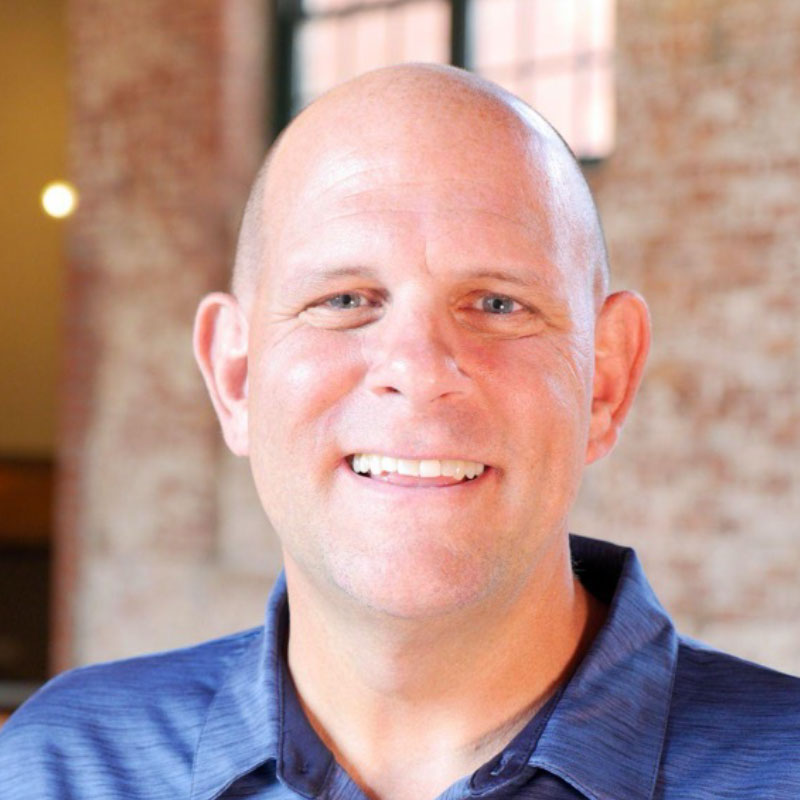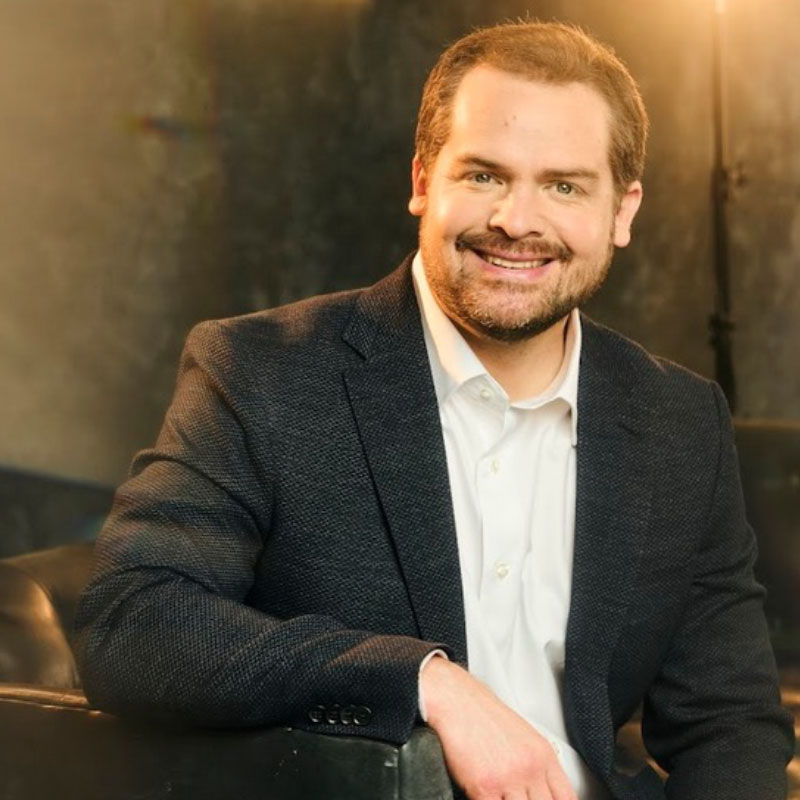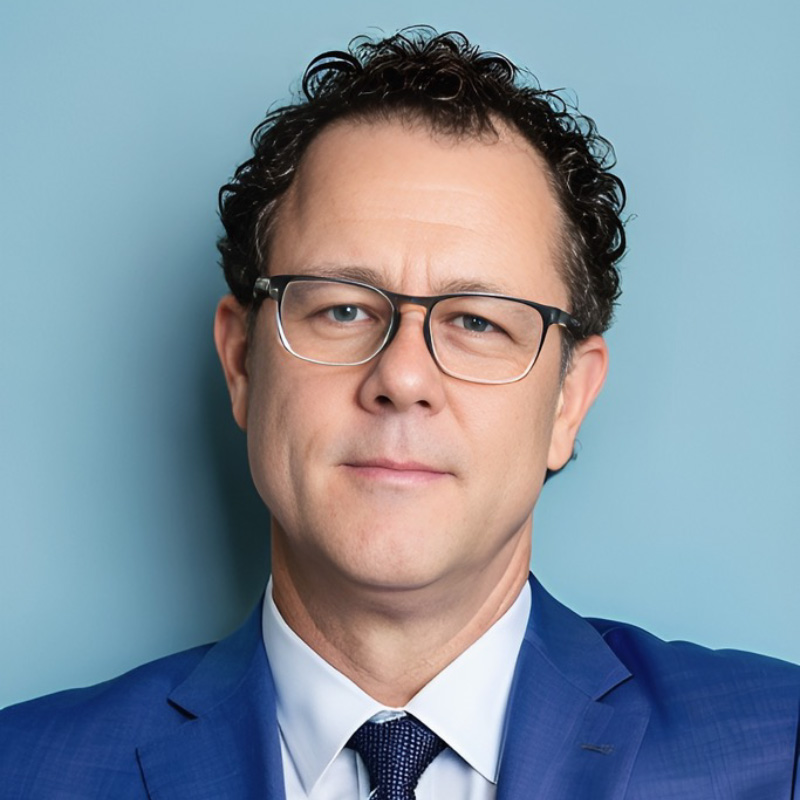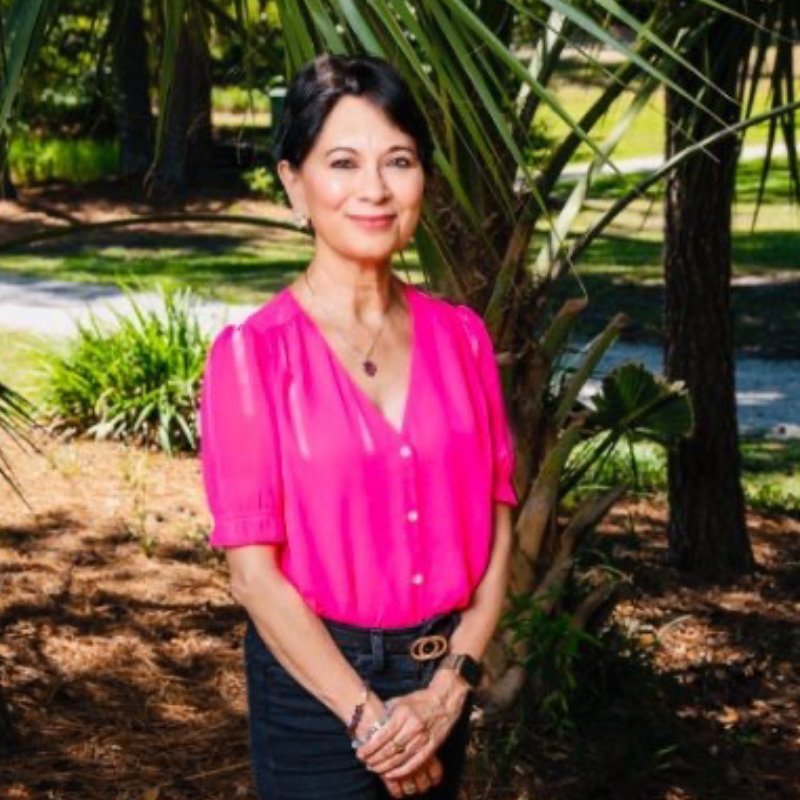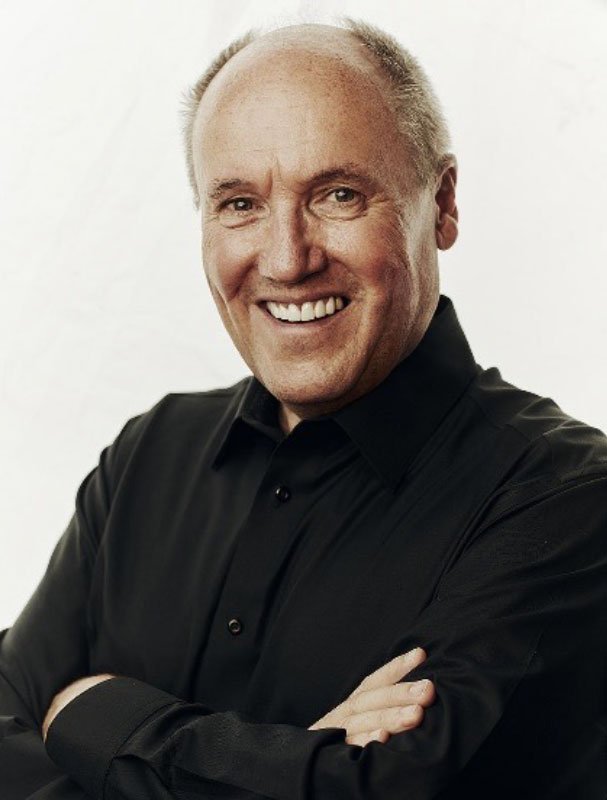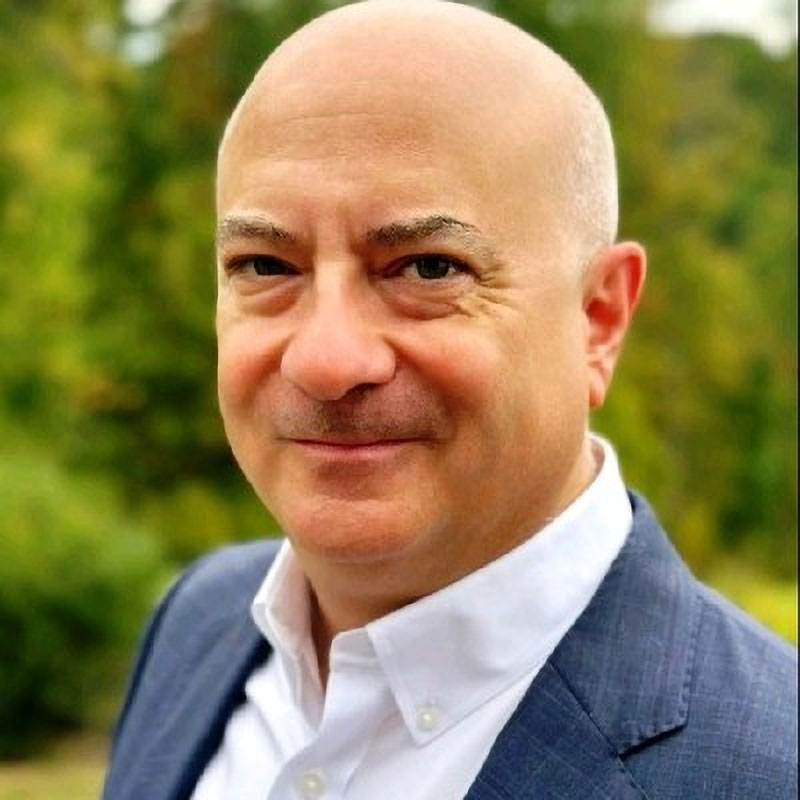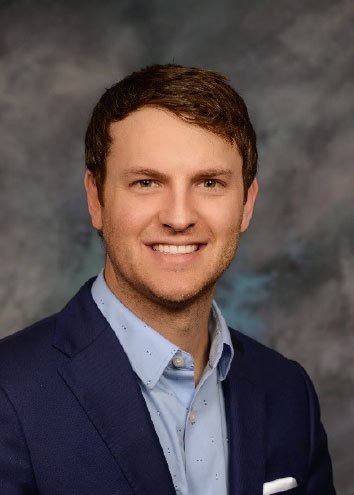Share This:
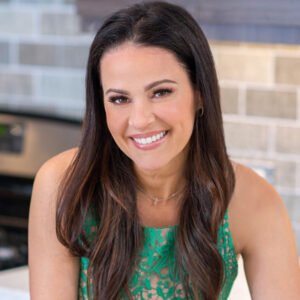
In this episode of The Matt Feret Show I interview registered dietitian, author, and plant-based expert Julieanna Hever. She provides practical advice for people interested in transitioning to a plant-based diet and emphasizes the importance of adopting radical self-compassion throughout the journey. She also provides scientific and anecdotal evidence to support the medicinal and preventative benefit of a plant-based diet for improving health and holistic wellness. Finally, we discuss and share our individual histories with food and diet, illustrating the rich differences between individuals and cultures.
If you enjoyed this episode of The Matt Feret Show, you may enjoy:
How to Overcome a Sedentary Lifestyle & Increase Your Health with Personal Trainer, Sammy Wilson
Mindful Eating with Michelle May, M.D., CSP
Medication, Fitness, Nutrition: Senior Health with Amy K. Wilson
Listen to the episode on Apple Podcasts, Spotify, Deezer, Podcast Addict, Stitcher, Google Podcasts, Amazon Music, Alexa Flash Briefing, iHeart, Acast or on your favorite podcast platform. You can watch the interview on YouTube here.
Brought to you by Prepare for Medicare – The Insider’s Guide book series. Sign up for the Prepare for Medicare Newsletter, an exclusive subscription-only newsletter that delivers the inside scoop to help you stay up-to-date with your Medicare insurance coverage, highlight Medicare news you can use, and reminders for important dates throughout the year. When you sign up, you’ll immediately gain access to seven FREE Medicare checklists.
Quotes:
“Food is not just nourishment, it is entertainment. It's what we celebrate over. It's what we mourn over. It's how we break bread and bond over things. Everything is surrounding food, our culture, our history, our relationships, everything. Food is everything.”
“Important advice I would say to anyone that's even thinking about changing their diet in any way is first, you have to want it. And second, don't be so hard on yourself. There is no such thing as perfect and aiming for perfection will never get you where you want to go. It's the small successes that will lead to ultimately your long-term success.”
“If you're bombarding your body with vegetables, fruits, grains, legumes, mushrooms, nuts, seeds, herbs, and spices that are rich in phytonutrients and fiber and antioxidants, all anti-inflammatories, your body's like, woo-hoo! Thank you! You're just getting out of your body's way and letting it heal itself, which is really all it knows how to do it no matter how old you are.”
#082
Selected Link from the Episode:
Host’s Links:
All Things Medicare: prepareformedicare.com
Decoding Social Security: prepareforsocialsecurity.com
My Written Works on Amazon: www.amazon.com/stores/Matt-Feret/author/B09FM3L4WW
The Matt Feret Show YouTube: www.youtube.com/@themattferetshow
Network with me on LinkedIn: http://www.linkedin.com/in/mattferet
Follow me on X: twitter.com/feret_matt
See behind the scenes on Instagram: www.instagram.com/matt_feret/
Join our community on Facebook: www.facebook.com/themattferetshow/
Guest’s Links:
Program website: https://healthspandietitian.com/
Instagram: https://www.instagram.com/julieannahever/
YouTube: https://www.youtube.com/JulieannaHever
Amazon bookstore: https://www.amazon.com/stores/Julieanna-Hever-M.S.-R.D.-C.P.T./author/B004HL387K?ref=ap_rdr&isDramIntegrated=true&shoppingPortalEnabled=true
Full Show Transcript:
Announcer:
This episode of The Matt Feret Show is brought to you by the Brickhouse Agency. Brickhouse is a boutique independent health insurance agency that focuses on finding the right Medicare coverage for folks across the country. Matt's wife, Niki, is the heart behind Brickhouse. She's great at making confusing things clear and is passionate about helping people find a Medicare insurance policy that suits their individual needs. To schedule a free one-on-one appointment with Niki or a member of her team, head on over to brickhouseagency.com or simply call (844-844-6565), and someone will help you schedule a phone call or a Zoom meeting. The consultation is free because the insurance companies pay Brickhouse, not you. There's never any pressure or obligation to enroll. Your clearer, simpler Medicare journey is just a call or click away. brickhouseagency.com. Not affiliated with or endorsed by the government or federal Medicare program. Contacting Brickhouse Agency LLC will direct you to a licensed insurance agent.
Introduction to Julieanna Hever with Matt Feret [1:09]
Matt Feret:
Hello everyone. This is Matt Feret, author of Prepare for Medicare and Prepare for Social Security Insider's, guidebooks, and online course training series. Welcome to another episode of The Matt Feret Show, where I interview insiders and experts to help light a path to successful living in midlife retirement and beyond. Julieanna, welcome to the show.
Julieanna Hever:
Thank you, Matt.
Matt Feret:
So tell everybody what you do, how long you've been doing it, and how you help people.
Julieanna Hever:
Well, I like to help people eat healthier and transform their relationships to their body and to their diet and to health. And I've been in the health and fitness industry for over 25 years now.
Matt Feret:
25 years. Start at the beginning. What'd you start doing? How'd you get here?
Julieanna Hever:
Such a long journey, but I started as a personal trainer and when I very first started as a personal trainer after undergraduate school, I was asked what they should eat. People asked me what should I eat because I'm teaching them how to work out, but they're like, well, what should I eat? And I thought, well, I don't really want to just kind of spit out that one little chapter that you get in the personal training handbook and pretend I was an expert in what I was saying. I didn't think that was safe. I feel like food is so much more important than that. And so I immediately was like, well, I want to learn. I want to know. I really, I was always fascinated by nutrition and food. It was always something that I was interested in. So boom, I thought I was done with school, but nope. I enrolled in graduate school and I became a registered dietician and I was personal training the whole time and just learning so much and just absorbing it. It was the first time in my life that I loved school so much because I was just so fascinated by all the nutrition, the food science, the medicine. I loved my internship. It was amazing. So it took me about seven years. I was working full-time as a personal trainer and loving that. And when I finally graduated and had babies, I kind of transformed my diet to something I'd been looking at for decades. And I started eating more of a plant-based diet. And this was almost, I don’t know, 19 years ago at this point. And my health completely transformed. I couldn't believe the difference in my health. After I changed my diet, I got rid of chronic sinus infections that I had my entire life.
I was really suffering. I was always having a sinus infection. They were gone. I had acne my entire life completely cleared up after I tried everything. I had all these kind of GI problems, just issues with my stomach gone. Once that happened, I was like, wow, this is extraordinary. That's all I wanted to talk about. So, I was just becoming a dietician. I had my babies at home, so I was just starting to blog and that's when blogs became a thing and then an agent reached out to me and asked me to write a book. And so, I started writing books. That was nine books ago. And then everything just sort of amazingly just came to and I was speaking, and then the Dr. Oz show called me on my cell phone and all that stuff started happening. I had my own TV show. It's just like it all just kind of happened in this beautiful flow that I would've never been able to orchestrate or predict, and it's been an incredible journey.
Matt Feret:
That's awesome. So, talk to me a little bit more about the whole plant-based diet thing. I mean, full disclosure, my wife's been a vegetarian since she was 12. I've got two daughters, both of whom are vegetarians. I spent nine months doing it. You're right, it did start transforming me, but then I craved fried chicken and that was kind of it that put me back on the meat-based diet. You talked about the physical transformation. When people hear plant-based diets that aren't plant-based already, they go, alright, you're going to take away all the stuff I love. What does someone have to do with their mentality to really fully grasp that of I can't have steak, I can't enjoy chicken wings, or do you have to change your mentality first or you just get started and see how it goes?
Julieanna Hever:
Okay, this is an excellent question, and this is where the deliciousness comes in. This is where I'm really mesmerized by now and enamored with, and this is what I'm working on. My next book. I love this question of here's what I've landed on. It took me many years to get to this point, but it is absolutely true. No one could ever unseat this in me that you could lead a human to healthy, but you can't make them eat. They have to want it. For the first several years, I'm like, oh my gosh, look what happened to me and look at this study and look at this, look at this book and look at it was like I was knocking my head against the wall. I'll try to convince people, and I realized, why am I not so effective? I want to change the world. What is going on? I'm so frustrated. And finally, I was like, well, forget about it. I'm not going to try to convince anyone of anything. However, if someone wants this, I will love them all the way through the journey and I will show them how, and I will show them that yes, you love these foods, but until the new foods become convenient, familiar, and enjoyable as those old foods were fried chicken, that's how you evolve into it. The cool thing is now I've worked literally with thousands of people, one-on-one and probably tens of thousands of people through my audiences. I just got an email from someone wrote me that I didn't even know this person read my book and changed his life, lost a hundred pounds. It was like I didn't even meet this person. So, I don't know the real impact that's going on, which that just makes me so happy. But I've worked so much with so many people on a very intimate setting. I love that. That's my favorite is the one-on-one where I get to really dive in. I use food as the language to uncover what's really going on emotionally and mentally. And psychosocially the biggest part, the psychosocial environment. But there's so much to it. Food, this is what my TEDx talk was about. Food is not just nourishment, it is entertainment. It's what we celebrate over. It's what we mourn over. It's how we break bread and bond over things. Everything is surrounding food, our culture, our history, our relationships, everything. Food is everything. However, what I've seen with thousands of people, and myself included, so I can viscerally explain this empathetically, is that your palate will shift. So if you shift over to eating more wholesome foods and you really, you commit to it and you could transition slowly. In fact, some of the research suggests that that's a more sustainable way to do so. I did. It took me years to kind of transition all the way to just all plants. But your palate shifts, man, your palate really shifts. And it goes from you really want these foods to, it doesn't even taste good anymore. And you'd rather have the more wholesome foods. And to someone that's like, I eat the standard Western diet, I'm not giving up my A, B and C, that sounds ludicrous, and you're like, screw you. I'm never going to even think about that. But if you actually wanted to, if you have a reason to or you're just even just sheer curiosity, you'll blow your own mind. It is extraordinary how powerful that shift can be.
Matt Feret:
How long does it take? So you went, you didn't go cold Turkey. Haha, that's a pun. You didn't go cold Turkey. You didn't do that. You kind of had some gateway drugs in here that you kind of pieced out. Did you go like what most people or I've heard most people do, which just like chicken and then chicken and fish and then fish only, and then nothing. Is that the way to do it? Or is it kind of a you have to make a decision? To your point, you can't lead a, what was it? Not a horse to water.
Julieanna Hever:
You can lead a human to healthy, but you can’t make them eat.
Matt Feret:
Right, you can't make them eat. Or do you recommend just giving it a try and flipping a switch and planning a day?
Transitioning to a Plant-Based Diet with Julieanna Hever [8:49]
Julieanna Hever:
So, I recommend being very in tuned with you and know thyself. And I transitioned, I don't even know exactly how it looked, but it was a slow morph. It got so weird that all of a sudden, I didn't even want sugar anymore. And that's weird because I was a sugar cookie, a colic, and that just happened naturally without me even thinking about it. So, I think the transition, again, the research seems to show that a slower transition is a little bit more sustainable. But there are some people that I work with that are like, Nope, I'm ready. Or oh, they just got diagnosed with advanced stage cardiovascular disease or type two diabetes, which a plant-based diet is the only diet that's ever actually reversed. Those two conditions. I see people reverse these very advanced versions of those conditions. And then the beginning of course, extraordinary things. So, you get a diagnosis, or you saw a friend have a major transformation, or suddenly you have a wedding coming up and you really just want to feel good and get into your size, whatever. And if you have that reason, and you have to have some reason anyway. But if you have a more imminent reason and that personality to dive in and go cold tofu, you can be successful like that too. As long as you want it, you can do it. So the other most important advice I would say to anyone that's even thinking about changing their diet in any way is first you have to want it. And second, don't be so hard on yourself. There is no such thing as perfect and aiming for perfection will never get you where you want to go. It's the small successes that will lead to ultimately your long-term success.
Matt Feret:
You're talking to me here. So let me just tell you, here's my little journey. My wife's been vegetarian for a long time and ovo-lacto, so she does cheese, eggs, byproducts, right? Not vegan, basically not eating flesh. And my whole life I worked out and then of course as you age, it gets harder. I sit at a desk most of the day and yeah, you work out, but the calories in versus the expenditure out, time passes, and weight comes on. And so, I've always kind of been like this. I know the health benefits; I've read all about them and I've seen what she eats. It's good. It's not bad, but gosh, how am I going to do this? Because I really enjoy steak once a month. I know it's trash food, but I really enjoy buffalo wings especially. It has something to do with the college football season. It's just something that's there that I'm associating with how I used to be and that crave there. So, when you say be kind to yourself, folks like me who have done it or tried it but go back, how should I think about turning that switch back on? My palate has gone back to, well, my palate for fried chicken wings never left, but for other things it did. So, will my palate turn back? Is it now primed to turn back to vegetarianism easier? How about this kind of yo-yoing back and forth, any different approaches there?
Julieanna Hever:
Yeah, I really want to get away from any black and white approaches anyway. So, it's more like I really believe in radical self-compassion and knowing that we are human. And you're saying, I said food is everything, right? So, you associate football with chicken wings, or you associate red meat with whatever, and it's an association. So, you build new associations and it's not black and white. It's not like, oh, I have chicken wings, it's all over. But remember that those foods are hyper palatable, so they light up the brain and release dopamine in very high doses. So sugary, fatty, salty, flowery foods, especially when they're all together, something like a hot wing or something lights up your brain. It's like a drug-like effect, a more benign version of it, but it's definitely a drug like opiate effect and your brain releases dopamine. So, there's a biochemical reaction to this. So, you're human. You are human. And what I like to say is we live in this, I call it the modern-day trifecta of overabundance. So, we are biologically primed. Our brain stem is primed to take in as much calorie when we are in front of it to survive in times of scarcity. But the second piece to this trifecta is there is no scarcity anymore. We are living in unparalleled times where we have access to food 24/7 everywhere we go, ubiquitously, pretty much we have more over nutrition around the world now than under nutrition for the first time. So, we have access. That's the second part. The third piece to that trifecta is that it's absolutely normalized. Everyone's eating chicken wings and watching the game. Everyone's eating steak at dinner. It's so normal. In fact, I'm the odd person out when I'm like, no, I'm not going to have dessert. Not in the mood or yeah, I don't want to eat that. I'm weird and honestly, that's the hardest part is I know I don't want it, but everyone has an opinion because everyone eats. So, everyone has an opinion, and everyone wants to convince you, and everyone wants to lure you in. Everyone's got all these ideas about food and everyone, no one's afraid to tell you what to do with your food, which drives me crazy, by the way.
Matt Feret:
You're so right. You're exactly right. I can't tell you how many times when I was doing this, I did it for nine months. I was like, are you still doing that? What do you mean? Are you still eating meat? Why do I have to defend? I'm giving it a try. I am trying to get healthy, and I did lose weight, and I did feel better. My skin cleared up. It’s just, chicken wings are tasty,
Julieanna Hever:
But so you have your chicken wings, but then the next day you're eating healthy again. That’s it. And the other thing, what I've noticed now, again, working with thousands of people, and I've tracked thousands of people's weight loss. I've tracked their food journals over years. So it's so fun. It's so fun to see what people eat. I love that. And just to talk about this stuff. So deep seated, and it's so social and interesting and psychologically interesting, but it takes a week, a full-on week to get over one of those dopamine hits, meaning you have one hit of chicken wings, you're going to be hungrier and crave stuff that's like a chicken wing for a good solid week. Even if you're not eating anything like that, it's crazy how powerful it is. So, you just have to be like, well, I call it a day of deliciousness. So, you're going to be watching the game, you're going to be with your buddies, and you really want to have chicken wings. So, you say, okay, next Sunday football, you're going to be eating these wings. So, the rest of the week you're eating super healthy, you look forward to it. There's no guilt or shame or regret involved because planning this, it's intentional. It's about being intentional. Then you go and you're eating your wings, and you enjoy every single morsel of it. You take a minute away from the game and actually taste them and feel them and smell them and enjoy them and see the grease on your hands, the whole experience and knowing that tomorrow you're not going to have them again. It's okay. It's just right now. Then there's no guilt, shame, or regret associated with, it's just this delicious enjoyment, pleasure. And then you can enjoy being healthy again because of all the benefits. And then you get all of the best of both worlds.
Unpacking Processed Meat Alternatives with Julieanna Hever [15:54]
Matt Feret:
I used the phrase gateway drugs, and I used it loosely as a joke, but it is a joke because there are gateway drugs out there to vegetarianism now, and this is all the smells, walks, talks, feels, cooks like meat products out there right now that are in your grocery’s freezer and in your refrigerator, and those sound great. And Burger King had a Beyond Burger or whatever brand that was right, and 45% less fat in that sense. It's great. Wow. We can make sausage and ground beef, and it almost tastes like the real thing, and then all of a sudden you read, it's still processed well, but it's pea protein and other things. It's all vegetarian, but it's still processed. It's got coconut oil in it. What's your take on these gateway meat substitutes. Are they really kind of gateway drugs to get a guy like me, who really obviously enjoys his carnivore habits, away from that? Or are these things kind of okay and fine and all this stuff about being overprocessed or processed versus natural overblown?
Julieanna Hever:
I have a lot to say about this, and as going through this for 20 years and watching this industry unfold, a lot of the people that are animal rights, activists-based vegan, they are celebrating this. And for that aspect, yes, you're saving animals and the environment in a lot of ways, which is absolute incredible and very important, and I'm very passionate about that. However, I also want to save humans. And while they're marginally better, they are marginally better, even though they're quote processed, everything's processed, but they're marginally better, but they still have the saturated fat. They still have certain things. They are still very similar nutritionally as the animal-based versions, which is what we're trying to get away from. So are they okay, yeah, you could transition them, but you still need to shift the palate. That's not going to help you shift the palate. And here's what's happened. Now in the last 10 years, I have seen vegans come to me with the same health issues as the omnivores. And every time I look at their food journals, they're dominated by these products because now it's like anything you could eat. I could eat vegan cookies, candies, ice cream, shakes, burgers, sausage, everything is vegan. Now you can get that all vegan. That's not shifting your palate, that's not shifting your diet, and it's not super healthy. So again, I want people to eat a diet based on vegetables, fruits, whole grains, legumes, mushrooms, nuts, seeds, herbs and spices in infinite tasty combinations, curries and chilies and stews and pizzas and paninis. And there's a million ways to do it in a really delicious way but made out of whole foods. That's when the palate shifts, that's when the health shifts. Those things can be punctuated throughout your diet, but I would punctuate them in the same way. I would tell you to do with the chicken wings. Maybe you try vegan chicken wings next time and see you'll still have the dopamine hit. It'll still solve some of that desire, most of that desire, but then you're still going to have to go back to eating the wholesome foods if you really want the overall health advantages.
Matt Feret:
What I'm going out to eat, obviously, because my wife's a vegetarian, I always try to make sure that there’s not just one grilled cheese sandwich on the menu. So, we always look before we go. Are there any types of cuisines that are, I guess more vegetarian friendly or only have little bits of meat? I'm thinking like Vietnamese food or maybe some Indian food as well. Are there different cuisines that are more helpful if you're trying to do this or thinking about this that you'll have some meat options, but you'll have plenty of very tasty vegetarian options to just go give it a try?
Julieanna Hever:
Yeah. Well, in my first book, I have a whole chapter on this and it's called Finding Something to Eat Even at a Steakhouse. The steakhouse has great side dishes, but I've traveled around the world. I'm off to Thailand very soon again, and I've taught cooking and health there. And what's so interesting, if you look at most of the cultures around the world, most of the cultures around the world are plant-based. So you go to Asia, there's lots of rice and noodles as the base. The meat was always the condiment, but now the meat has become, because us has brought this into the universe where meat is a center of the plate and changed the way we look at food. It was never like that. So, oh my gosh, some of my favorite cuisine, Ethiopian cuisine, Indian cuisine, Thai, Mexican, there's so many amazing foods from around the globe with amazing flavors and variety and versatility that are all plant-based. And even if you see meat in it, usually again, it's condiment size levels. It's not the center of the universe. And my God, if you think about it, we're talking about seven people lump it into seven categories, right? Poultry, red meats, fish, whatever. There's seven animals and we think that so exciting, but we eat it. It's all the same thing. But if you're thinking about an Indian curry or green curry or a whole, there's so many different types of cuisine and flavor profiles. If you've ever eaten Indian food and there's like 8,000 different things and they all taste completely incredible, it's so exciting to think outside of that meat, to think outside of what else can you do? So yes, in fact, I took my daughter to Paris for her high school graduation, and we didn't have French food once because that's very cream and meat based. Instead, we were looking for international. We had one night, we had Italian, one night we had Japanese. Oh, we had Japanese my favorite. One night we went for different cultures, and that's how we're always, it's very easy for us to find food that we love.
The Health Benefits of a Whole-Food Plant-Based Diet with Julieanna Hever [21:32]
Matt Feret:
So, you mentioned briefly earlier about someone having chronic condition, right? Cardiovascular disease, diabetes, etc., and using plant-based nutrition as medicine. What have you seen in your travels and your food journals and your one-on-one coaching that have actually either stopped it or stopped it's advance and or reversed it?
Julieanna Hever:
Okay, well, let's start with the literature first, because I'm a dietician and I go to the science first, then I could talk about anecdote all day because it's amazing. My mind gets blown every day, even though it's like I've seen this so many times over 19 years that I don't know why I'm still so excited about, but it's stuff I never learned was possible in the clinical rotations in my grad school, it was never even an option that this could happen. But from a literature perspective, a plant-based diet is the only diet, the only diet that's ever been able to reverse advanced stage cardiovascular disease in type two diabetes. It's associated with a decreased risk for and reversal of hypertension, hyperlipidemia, hyperglycemia, precursors to all of those things. It is associated with reduced medication requirements. This is my favorite part because literally my role as a healthcare provider was to be, I was taught, was to mitigate the need to increase the dosage to mitigate the progression of the disease. Well, that's not what I see. What I see is we taper off medications, people get off medications, and I always say results are typical. Unlike the drug commercials. This is typical. So when I start with a new client that's very on, especially a high blood pressure or a high blood sugar medication, I tell them before you start this diet, you're going to have to measure your blood sugar, measure your blood pressure multiple times a day because it happens that quickly. Call your doctor, you must call your doctor. You are going to need to watch this very carefully. So recently, I do these groups. I do online groups once in a while where I leave a 21-day challenge and my last 21-day challenge one of the participants within a week. One week, he got off of his entire life, like 30 years of three high blood pressure meds in a week. It is incredible. So that's the literature, but there's more because now we're seeing impacts on autoimmune disease, which we didn't think was touchable and kidney disease, chronic kidney disease, and I mean, you name it. Certain cancers, there's a million layers to that, but there are some cancers associated with a decreased incidence and actually an attenuation of the progression of the disease with the plant-based diet. I've seen people with M.S, stop the progression of M.S, I've seen people with chronic pain. That's a normal thing because a lot of people are in chronic pain due to inflammation, and this is a very anti-inflammatory diet. So, within days, I've got clients saying, I'm on the floor with my grandchildren and they hadn't been able to play. I'm running up the stairs. They weren't barely hobbling up the stairs. Pain goes away, inflammation goes away. I mean, it sounds like I sound like an evangelist and I'm not. It's just I've seen it over and over and over again for 20 years and the literature supports it. So, it is as spectacular. And the cool thing is it's a one size fits all approach. It works across the spectrum. So, when I was in grad school and in the hospital, I was learning, this is a diabetes diet, this is the cardio diet, etc., here's the thing we've got one body, and most disease processes originate with inflammation. And so, if you're targeting the systemic approach, it's almost like a holistic or Eastern philosophy approach with a very western kind of world. It's that you're literally quelling and mitigating all of those processes so that you can heal, and your body can actually just take care of itself, and we get out of the body's way so that it can do all of its magic that it knows automagically how to do on its own.
Matt Feret:
Thank you. The next piece of this is preventive, and let's just go middle age, whatever that is to anybody listening or watching middle age, I can tell. I mean, even just talking with my friends, you could do you eat certain things and drink certain things in your twenties and thirties that you bounce right back the next day. It might not hurt, but now, I mean, I'll go back to me, when I have that steak once a month, it hurts. It feels great going down. It's very, very tasty. But then it hits my stomach and my body's going, whoa, we don't like this anymore. And I have another friend who's got, I'm going to completely mess this up, but I think there are enzymes in meat that cause problems for him now. At least that's what his doctor's telling him. That never happened earlier on. So how in your experience, how does your body chemistry change or how can it change when you move past your indestructible twenties and thirties and even early forties, if you're moving into your fifties or moving into your sixties or seventies, what body chemistry changes happen along those ways that make or don't make a plant-based diet probably easier on your system?
Julieanna Hever:
Oh no, I've worked with every decade. It works for everyone. It is never too late. Let's just start with that. It is never too late to make a difference. I've worked with people starting in their eighties that have significantly benefitted instantly. So, I'll say this, our bodies are adapted to procreate the species. So after, and then so our first 15 years, we're getting ready for that, and the second 15 years we're raising our children, our offspring, and then after that, mother nature is done with us. So, everything starts to go to hell in a hand basket. Let's just admit it. We've all been there. We're all there. I'm going through it. But yeah, we cannot bounce back there. We could. However, if you stop assaulting the body with chemicals and things that really impacted negatively like sugar and animal products, like high fat diets and high animal product diets, saturated fat diets, no fat is not bad. I want to make sure that's clear. If you're assaulting your body with highly processed foods and lots of animal products, your body is constantly trying to adapt and fix it and recover from that. So, if you get out of its way, and it's like the same coin, right? What you're not putting in your body and then what you are putting your body instead, because this is like you've got only so much real estate on the plate. So now if you're bombarding your body with vegetables, fruit to grains, legumes, mushrooms, nuts, seeds, herbs and spices that are rich in phytonutrients and fiber and antioxidants, anti-inflammatories, your body's like, woo-hoo, thank you. It's like heal. Let that oxygenate and you're not trying to fix and absolve and resolve things. You're, you're just healing and you're just getting out of your body's way and letting it heal itself, which is really all it knows how to do it no matter how old you are.
Matt Feret:
I had a personal trainer once that said, 90% of your success is diet, 10% is what you're doing with me in the gym. Does that sound about right?
Julieanna Hever:
I say a hundred percent is diet.
Matt Feret:
So, what kind of transformation can I expect? In, I don’t know, three months, six months, nine months a year if I've tried weight loss or if anybody listening has tried weight loss and by calorie restriction, weight loss by running forever or exercising forever or lifting very, very heavy weights, all good things for health, right? Not overdoing it, but working out and maintaining physical activity is wonderful. Doing that and being unsuccessful happens a whole lot because I think it's, again, the 90% diet, 10% exercise piece. If just don't, even if I take a year and don't lift a weight or don't jog a mile and I only go to plant-based diets, have you seen people do that? And if you have, what are the outcomes?
Julieanna Hever:
Okay, my clients predictably lose 0.4 to 0.8 pounds a day of body fat. When they do my program, a hundred percent food, I ask them to stop exercising. And if they're exercising, I'm like, just do very light the least amount possible. Some light yoga, maybe a little walk with your dog, no exercise. Why? Exercise drives appetite. It may be small. There's also this psychological underlying belly that says, oh, well, I exercise so I can have blah, blah, blah. But it's a hundred percent food and diet are already in the literature, is the number one cause of early death and disability in the world. Diet is the most important thing, but in terms of weight loss, specifically, my clients is 0.4 to 0.8 pounds a day of body fat by mitigating or eliminating or at least modulating their exercise and eating. You have to eat less. There's no way around weight loss. The only way a gastric bypass surgery works is because you eat less. The way these semaglutide shots that are miraculously sweeping the nation are working, people are eating less. All the diets that you've ever been on, it's because you're eating less. You've seen how many people do you know that exercise three hours a day and can't lose weight? I trained for a marathon and gained weight and did a marathon and gained weight. It has nothing to do with it. It's healthy. There's no question that exercise is important for every system in the body. But the way I do this with my clients is once they get to their goal weight, we bring back exercise intentionally to step into maintenance mode, and then you do it for life. So, then exercise will help with weight loss maintenance. It does not help. It literally has the rate of loss. My clients that insist on exercising because for mental reasons, I mean feels good or whatever, they literally go from 0.4 to 0.8 pounds a day to 0.2, to 0.4 pounds a day of loss with exercise. And if it's too much exercise, they don't lose it all.
Matt Feret:
Why not? Is it just the body can't keep up or they're overeating, they make up for the calories they burned and then some.
Julieanna Hever:
It's all about creating enough of a deficit for your body to go into weight loss. Your body is brilliant and very adaptable. It's a survival mechanism. We want to keep on weight that'll help us survive. We just don't have times of scarcity. We need a time of scarcity to lose weight for our bodies to go, okay, we're out of fuel. We got to go through our body. Adipose tissue is our reserved storage of energy.
Matt Feret:
When you move to a plant-based diet, what happens to being hangry? I mean, that's the phrase. You know that phrase, right? You get hangry. You don't have the right balance. You don't have the right mix. Or you're working out and all of a sudden, your body's like, feed me. Now. How do you respond to those? I mean, it's easy, right? Everything's out there. Go out and buy a quarter pounder or reach into the fridge for some lunch meat because it's real. It's sustenance. I don't want to go after rice. I don't want to go after a salad when I'm hangry and I'm really hungry right now and I need to eat right now. How do you get your clients through those areas? Is it meal planning? So, you never get that way or it's having very healthy things on hand or nearby?
Julieanna Hever:
You've just listed a whole slew of social constructs and narratives that we all kind of use. But the truth is, is that we are very meticulously surviving and living on a circadian clock tied into the sun, the ocean, everything. Our other organisms, we are very tied into this clock, and at one time of the day, we release a lot of cortisol to wake up and have heat, and by the end of the day, we release melatonin. Our bodies are on a clock. That said, you can train your circadian clock in your advantage. I have my clients eat at the same times every day, and then an hour preceding that time they're hungry because their body knows it's time after it takes usually three, four days. Some people, maybe the max would be six or seven days to adjust to this, but all of a sudden, they're hungry only at the times that they predict. I was a trainer, so I used to eat every two hours, light your metabolism, blah, blah, blah. Now I love to eat once a day and I don't even want to eat the rest of the day. And I trained myself. I didn't know that was possible. If you would've told me this 10 years ago to would've thought that was insane. I prefer to eat one big meal a day, sometimes two medium meals. But I've trained my body to get used to that, and I've seen this again with all my clients. It's like if you eat at the same time every day, your body gets used to it and you're not hangry, and you time it accordingly. So, you make it so the least amount of friction in your life possible. If you and your family eat it dinner together at seven o'clock, then that's set in. So, then what's your other meal going to be and what's going to work seven days a week? But you can absolutely train your circadian clock to work in your best service to actually help you achieve your goals and do what you're trying to do.
Matt Feret:
There also are health and fitness apps and food recording, do you get into that with your folks? Is that important in terms of a calorie and a mixture, or is it really just meal planning in an appropriate way?
Julieanna Hever:
So, I'm a dietician. I don't count, calculate, measure away. I refuse. I will not make a meal plan for my clients. Instead, I co-create meal plans with my clients. I teach them how to meal plan for themself because anyone could follow a diet, but that's not sustainable. I want to be able to, it's giving a person a fish versus teaching them how to fish. So, I do like logging food, not for calories. You don't have to do it like that. I have them just do a very simple chart for me because it gives you accountability, which is really helpful. In fact, a lot of people that are gearing up to work with me, they have to fill out an intake form in a food journal. A lot of them start the weight loss process just by filling out the food journal because they have to write it down. So, there's a very powerful effect of the accountability, but also just because then you could track things and you can know what works. Because what we're doing is we're searching for the meals that work for us. What helps you lose weight? What gives you the most satisfaction satiety? What food do you love the most? So having a food journal is very, very helpful. You don't need to measure. I use my fist to be about a cup, so about two cups of the cheesy hash brown bake. Today at 10 o'clock, I had about three cups of the cream of mushroom cauliflower rice. And then that's enough information to have to go back to. And then also if you're, A lot of people come to me, they're trying to associate when they have GI distress or they're trying to associate kind an intolerance. So again, you could find patterns. So, I think it's very helpful. I've been keeping a food journal my entire life, but which is fun. It is not a big deal. You don't have to make it complicated. It becomes part of your habits. But also wanted to say this to you before that every single thing about food is habit and you can change your habits.
Matt Feret:
How long does it take to change a habit? For most people when it comes to eating,
Julieanna Hever:
The literature is all over the place. Some people say three weeks, some research does a year. Here's what it ultimately boils down to. It depends on you. The more you do it, the more consistent you are. The more days you have behind you doing the same thing, the more automatized it becomes. So, depends on the person.
Breakdown of Nutritional Content and Balance in a Plant-Based Diet [37:21]
Matt Feret:
I think I might know your answer to this, but I'm going to ask it anyway. What about the pie chart, carb, protein, fat?
Julieanna Hever:
What do you think I'm going to say? I'm curious what you think I'm going to say.
Matt Feret:
Throw it out the window.
Julieanna Hever:
One of my missions in my life, if I accomplish not much more than this, I will feel like I succeeded. I don't know if I will in my lifetime. I call it macro confusion. It is the number one thing I believe. I'm certain it is the number one thing that's screwing up everyone when it comes to nutrition, including the healthcare professionals and researchers themselves. Why do I say that? Here's a perfect example. There was a study in the Lancet Journal in 2018, and the conclusion of the study was a high carb diet and a low carb diet, increased mortality. What does that mean? Here's another argument. If you ate the right amount, would you associate, would you think of a potato as a carb?
Matt Feret:
No. Well, yes, but it's a starch.
Julieanna Hever:
Well, starch is a carbohydrate technically.
Matt Feret:
Then, yeah.
Julieanna Hever:
Okay. So, if you had enough potatoes to meet your calorie needs in a day, you would get the right amount of amino acids. A potato has a better amino acid score, meaning the protein score, than 90% lean beef, so it's not a carbohydrate. And then here's another little conundrum. If you look at any food, there is no such thing as a carb. A carb food would be sugar, a fat, pure fat is oil. Pure protein may be protein powder. Every other food is some combination. So, what they do in these research studies, which is the fatal flaw, is that they count carbs. So, it'll be like, “A lentil stew will be the same as a sugary breakfast cereal in terms of carbohydrate content.” In my last book, the Choose You Now Diet, I should pull it out. So cool. This chart, I compared a donut to, I don't remember what it was, but it was like a potato, and it was all based on the carbohydrate. But one is high in fiber and one is low in refined sugars, and one is high in protein, and the other one is high in refined sugars. So, it doesn't matter. You could have the same carbohydrates isocaloric in terms of carbohydrates or, or macronutrient, I should say. And it's going to interpret completely misleadingly in the literature, and that's why we'll never get it right if we keep doing this. Furthermore, some of the healthiest diets, okay, let's take the Okinawa diet. This is probably one of the healthiest diets ever of all time. Very high carbohydrate, low fat. However, look at the fancy Mediterranean diet. I wrote a whole book of debunking this whole concept, not debunking, but explaining the Mediterranean diet very high in fat. How could you have two diets that are the healthiest diets on the world with completely different macronutrient ratios? Why? Because it doesn't matter. Macros don't matter. Eat vegetables, fruits, whole grains, legumes, mushrooms, nuts, seeds, herbs and spices in infinite tasty combinations. If I told you, eat a super stew or a chili or some chickpea pasta with marinara sauce, you know what that is? If I said to you, eat a low glycemic, high carbohydrate, low fat, moderate protein meal, what the heck does that mean? What do you even do with that information? Even a dietician doesn't know what to make of that.
Matt Feret:
Yeah, and make sure it's 33% fat and 33% carb and 33% protein, right? Because that's easy.
Julieanna Hever:
And a hundred percent crazy in your mind. It doesn't make any sense.
Matt Feret:
So, it's whole foods, healthy foods, nutritionally complex foods, and stay away from processed or stay away from sugar.
Julieanna Hever:
Eliminate or minimize, yeah, minimize or eliminate a lot. Minimize at least animal products and minimize or eliminate processed foods. That's it. Keep it that simple. No perfection. Don't have to be perfect. Now, if you come to me and you've got a very serious, very advanced stage of disease and it matters, every bite matters even more, then we can get serious. Then it's like, don't have any of that stuff right now. Just not right now. And by the way, it's all mental. I tell my clients, just not right now. Who cares what you're doing next month, next week, next year? Just right now you're eating plants, you're eating whole plants. The other thing I say is all my clients who have kids or family or whatever, you just say to yourself, “That's not my food. That’s their food.” Ask your wife if she wants to have a bacon cheeseburger and she'd be like, I don't eat that. Because in her mind, that's not her food. So, you could also say that highly processed food, that's not my food. You could eat that. I see that as toxic. It’s all mental. It's all mental. It's fascinating, but you can change your approach. Then you start feeling great, and then your lab starts to improve, and then you get off medications, and then you've got energy off the walls and you're bouncing off the walls. You're like, why would I ever want to eat that stuff? That makes me feel so crummy. Like that steak after the steak, you feel a difference.
Matt Feret:
Yep. Same for chicken wings.
Julieanna Hever:
Yeah. Well then why would you let perfection get in that way of all the magic you can have unfold?
Self-Compassion and Personal Choice in What We Eat [42:46]
Matt Feret:
Well, because I'm probably a lot of other people. I'm either on this diet or I'm not, or I'm eating plant-based or not. I think there's probably a lot of light switch people. I know that's not a healthy way to think about it. I completely understand that. But it's just, it's rewiring my own brain. If I have a normal that I like and I really don't have to pay attention to anything, and then I'm going to have to pay attention to whatever diet or approach is in there. It's just not yet to the permanent lifestyle change. But I'm getting there, and I like the way you say, yeah, give yourself a little grace and be okay with it. If you want to go back and you want to have a chicken wing, I don’t know why I'm so focused on chicken wings, they're just tasty. But it's something that you find pleasurable and good, and it just so happens to be an animal product, then do it. But don't just go like, ah, it's all over, or I ruined it now. I can never go back. I'm back to the old me. Give yourself some grace and go back to it and try it again.
Julieanna Hever:
Yep. Radical self-compassion, and that's longevity and sustainability. That's the success. It's not what you do perfectly. It's the long-term ness of it.
Matt Feret:
I like it. I'd be remiss if I didn't talk about people listening with parents or people listening with other loved ones who haven't adopted or thought about this stuff. If you've got a parent or a loved one that has got a condition or getting older, anything, any tips, tricks?
Julieanna Hever:
This was the hardest lesson of my life and my career. You could lead a human to healthy, but you can't make them eat. I remember my father, who's okay now, miraculously, thank God, but he had a stroke and then the next year he had a heart condition thing happen, but he was out of it. He was unconscious. So, my dad, so he's on the bed in the hospital coming to consciousness after this stroke, and mind you, my father eats horrible. I've tried my whole life. I've cried. I've begged. He's seen me speak. He's read my books. He's seen my films. He's seen me on tv. He thinks it's really funny. He is like, ah, ha, ha, diet. Really?
Matt Feret:
I think I'd like your dad.
Julieanna Hever:
Yeah. Well, his doctor told him, oh, by the way, it doesn't matter what you eat, just don't drink alcohol or coffee, which is horrible advice. But doctors, I mean, I teach doctors all the time. They don't learn nutrition in med school, but he wanted that advice, so he took it. Anyway, he's in the hospital. He's coming to, I'm on FaceTime with them. I'm like, dad, what happened? He's like, I was eating a little bit more, blah, blah, blah. They spent half the year in Mexico. I'm like, okay, well, this is what I do. I can help you. And he looks at me in the camera in my eyes, and he goes, Julie, you have to want it. And that's it. The people I love the most, you have to surrender. It kills me. I mean, literally, I've helped so many people, which I feel so honored to have been able to do that. But the ones I want to help the most, that I care the most about, that I live and breathe for, I have no power. And it kills me, but I have to surrender. My son wouldn't go out to eat with me. We'd have our little brunches, and he wouldn't come out with me, and I had to just say, okay, I am not going to say one more thing about his food, and it's hard. I have to watch it right in front of me.
Matt Feret:
Well, I think that sentiment could be dragged and dropped over a whole bunch of stuff between parents and children. I think what you said is probably everybody's listening, nodding and then filling in the blank of what that means to them as well, right?
Julieanna Hever:
Yep. Here's what I say. I'm going to have one little silver lining. This is how I think of it, and I've seen this to be true. You can be a lighthouse, not a tugboat. If you're a lighthouse, people will follow. If you're a tugboat, people will resist and rebel. And so be a lighthouse and do it yourself and role model what you want people to be, the change you wish to see in your loved ones that's gone.
Matt Feret:
Tell me what topics we didn't cover about plant-based diets and how to think about them and how to move into them or move back to them and the benefits. What questions about it did I not ask that I should have?
Closing Thoughts about Transitioning to a Plant-Based Diet with Julieanna Hever [47:30]
Julieanna Hever:
I would say, let's talk about how to transition. If someone's really curious, where do you start? I would say this. First of all, forget perfection. Go to what's familiar. Most of us are creatures of habit. Most of us circle between one to two different breakfast, three to four different lunches, five to six different dinners in a week. That's it. You only need 10 new favorite recipes. So just find 10 new favorite recipes that you could rotate through. Start simple. The other thing is, go back to what you're used to. We all grew up eating things. We just didn't think about it. Spaghetti pasta, primavera spaghetti with marinara sauce, bean and rice burrito or veggie sushi or oatmeal or fruit salad or a salad with beans. There are so many things that we ate that was plant-based. We just didn't really think about it like that. So go back to the familiar, because now what you want to do is find your new, familiar, convenient, and enjoyable foods that just happen to be all whole plants that you love. You have to love your food. Otherwise, this will never last. So, start with what you love and stay simple and don't beat yourself up. Get back on the human. You're human.
Matt Feret:
And if I get bored with those 10, find another 10 then, right?
Julieanna Hever:
Yeah, absolutely. And then you can get creative. You're like, ooh, I really want to know how to be to make a plant place lasagna. Well, nowadays you could just because when I was writing my first books and I had to write recipes, and I wasn't taught how to, I'm not a chef. I know medicine. I don't know cooking, but I had to, and I had six weeks to write my first book with two toddlers in the house. That was insane. So, if you don't know what you're doing and all of a sudden you find a recipe you like, then you just, now you go to online, you could search whole food plant-based lasagna, and there's like 8,000 of them that pop up. So, it's never been a better, easier time than now to experience this stuff. But be careful of those processed foods. They're all processed, whether they're plant or animal based.
Matt Feret:
Julieanna, I can tell you, you've inspired me to go back. Now that I can forgive myself for eating chicken wings and enjoying them, I'm going to go give it a run. I'll do it right after this. I'll start. I want to go back and talk to my wife and go, all right, we're doing it again. Help me, support me, and remind me as well. Probably always need that little family support too, if you've got it right.
Julieanna Hever:
If you've got it. But if you don't, you could still do it. But that's wonderful. Please let me know how it goes.
Matt Feret:
I will. Juliana, thanks so much for being on the show.
Julieanna Hever:
Thank you so much, Matt. It was nice to talk to you.
Matt Feret:
The Matt Feret Show related content, publications, and MF Media LLC is in no way associated, endorsed, or authorized by any governmental agency, including the Social Security Administration, the Department of Health and Human Services, or the Centers for Medicare and Medicaid Services. The Matt Feret Show is in no way associated with authorized, approved, endorsed, nor in any way affiliated with any company, trademark names or other marks mentioned or referenced in or on The Matt Feret Show. Any such mention is for purpose of reference only. Any advice generalized statistics or opinions expressed are strictly those of the host guests of The Matt Feret Show. Although every effort has been made to ensure the contents of The Matt Feret Show and related content are correct and complete flaws and regulations change quickly and often. The ideas and opinions expressed on The Matt Feret Show aren't meant to replace the sage advice of healthcare, insurance, financial planning, accounting, or legal professionals.
You are responsible for your financial decisions. It is your sole responsibility to independently evaluate the accuracy, correctness, or completeness of the content services and products of and associated with The Matt Feret Show, MF Media LLC, and any related content and publications. The thoughts and opinions expressed on The Matt Feret Show are those of the host and The Matt Feret Show guests only and are not the thoughts and opinions of any current or former employer of the host or guests of The Matt Feret Show. Nor is The Matt Feret Show made by on behalf of or endorsed or approved by any current or former employer of the host or guests of The Matt Feret Show.





